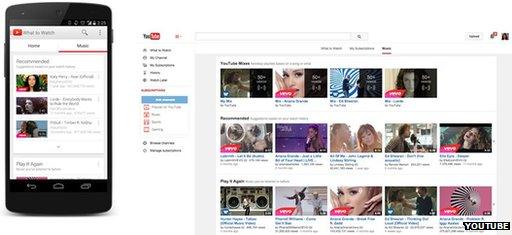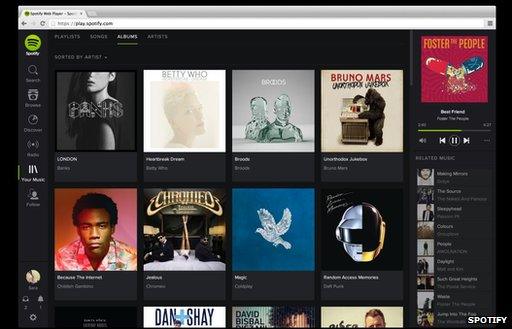Will YouTube Music Key make Spotify sing the blues?
- Published
Hands on with YouTube Music Key
YouTube's subscription service is just the latest entry in what is now a very crowded market.
For music fans these are the best of times, with a wide choice of free advertising-supported services and now an increasing number of paid options.
What's not clear is how many people will want to pay for YouTube's Music Key.
What you get is music videos without ads that you can also download - to your phone or tablet, but not your PC.
But paying £9.99 a month for that may not look attractive to a young audience who probably find ways of downloading anyway using a number of freely available tools.

People who sign up to Music Key will get ad-free clips and the ability to save videos to their smartphones and tablets
And while it is bundled with the existing Google Play subscription music service - which has made little impact since its launch - it does not come in a single app, so it does not add up to a simple, compelling way to access all of your music at home and on the move.
So, should Spotify, the market leader in music streaming, feel able to relax?
Maybe not - there is now a new revenue stream available to artists, many of whom are disgruntled with what Spotify is paying them.
It's not clear that YouTube Music Key will pay more - but if others follow Taylor Swift's lead and desert Spotify, that could signal a shift in the balance of power in digital music.

Spotify revealed earlier this week that it has 50 million active members, 12.5 million of whom pay a subscription fee
And we still don't know what Apple plans to do with the Beats music-streaming services it acquired when it bought the headphones business earlier this year.
A future in which Apple, YouTube and Spotify all needed to show they had the best range of streaming music could put power back in the hands of artists.